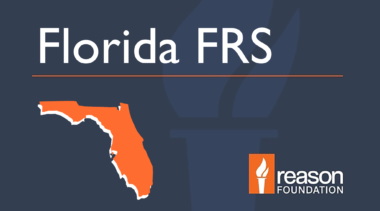Raheem Williams has contributed to the Pension Integrity Project's research.
At Reason, Williams has contributed to in-depth analysis of the Florida FRS, North Carolina TSERS, and North Dakota PERS pension systems. Williams also co-authored a study of defined contribution plans as part of Reason’s ongoing Gold Standard In Public Retirement System Design series. He has presented testimony before the North Dakota House of Representatives Government Veterans Affairs Committee on House Bill 1209 and Senate Bill 2046.
Williams’ work has appeared in The Orlando Sentinel, Carolina Journal, The Grand Forks Herald, South Florida Sun Sentinel, The Florida Times-Union, and Townhall Finance.
His work has been published by The Foundation for Economic Education and The John Locke Foundation.
Previously, Williams worked as an economic research specialist with The Center for the Study of Public Choice and Private Enterprise at North Dakota State University.
He completed his undergraduate degree in economics at Florida International University in Miami, FL, and his Master’s in Financial Economics at the University of Detroit Mercy.
-
North Dakota Public Employees Retirement System Pension Solvency Analysis
The public pension plan has only 68 percent of the assets needed to fully fund the system in the long-term.
-
Defined Contribution Plans: Best Practices in Design and Utilization
If properly designed, defined contribution plans can meet the employee retirement needs of today’s evolving and dynamic public sector workforce.
-
North Carolina Teachers’ and State Employees’ Retirement System: A Pension Solvency Analysis
Better risk management and more realistic plan assumptions can help ensure the state delivers the promised retirement benefits to its employees.
-
Continuing Reform: Challenges Persist With the Florida Retirement System (FRS)
The retirement benefits ultimately received by members of both plans within FRS will come at an ever-increasing cost to taxpayers and other public services if needed technical adjustments to both plans go neglected.





